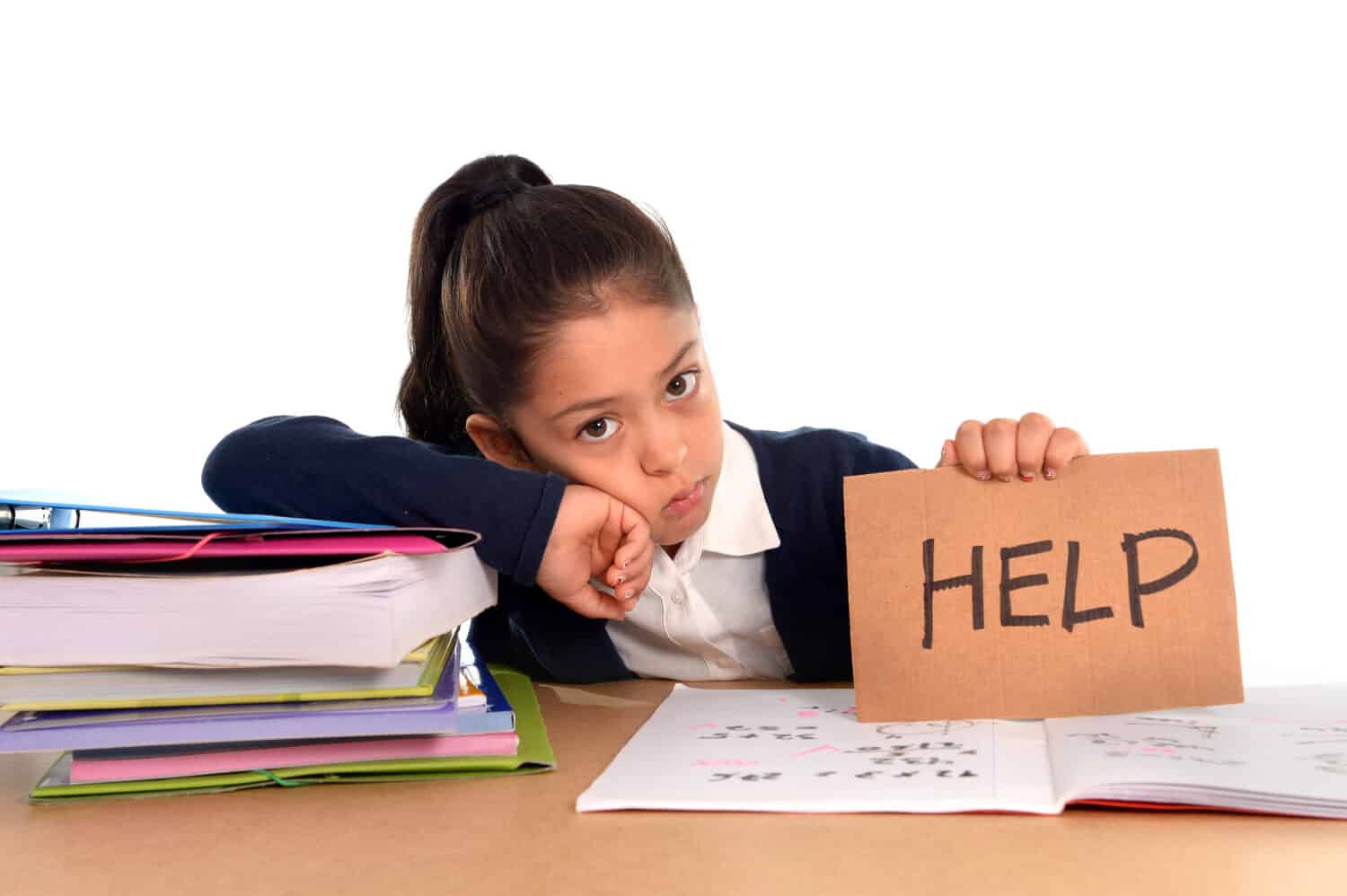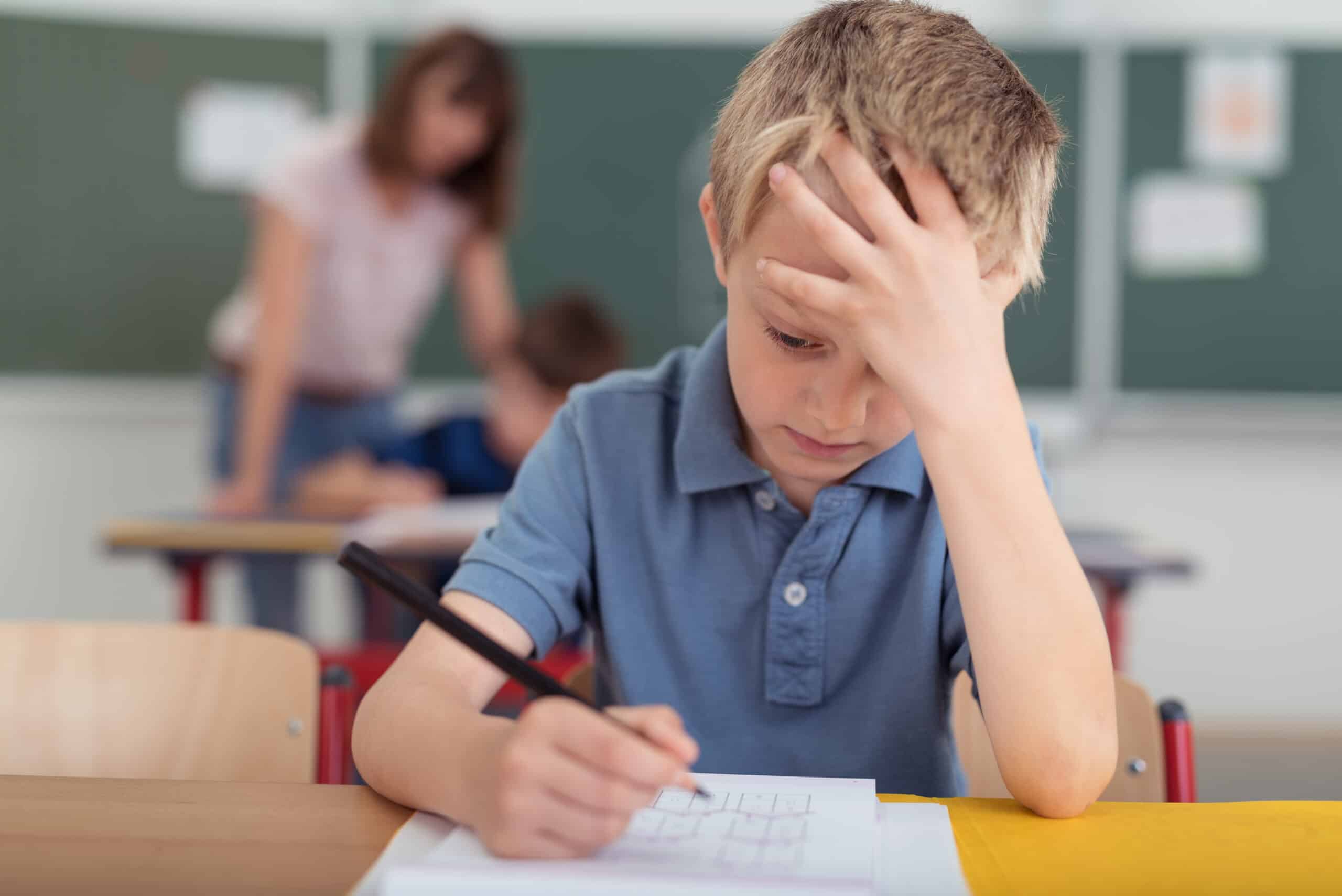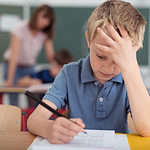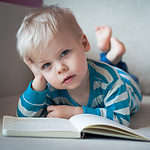





















10 Signs Your Child May Have Dyslexia
There are many childhood developmental milestones to consider as your kids get older, and many of them are related to reading and writing. If your child is having trouble with learning, reading, or writing, it may be a completely natural part of development. However, some additional symptoms could point to a potential diagnosis of dyslexia. There's a lot to consider, and this article is not meant to scare you. Still, here are 10 signs your child may have dyslexia.
There are various signs of dyslexia that you can look out for, including those associated with reading. If your child mixes up words and sentences or struggles to read, it may be a red flag. There are also signs associated with behavior, such as acting out and getting easily distracted. While we're trying to keep parents informed, keep in mind that this is not medical advice. If you believe your child may have the symptoms of dyslexia, be sure to get the advice of a medical professional.
The Little Things
While there are plenty of specific signs that can cement the idea that your child has dyslexia, there are other indicators that you may notice first that may give you a better idea. Keep in mind that a child with these symptoms doesn't necessarily have dyslexia, so don't get overly concerned. However, if you're visiting the doctor, then they are something you could bring up. General signs your child may have dyslexia include:
- Difficulty concentrating
- A hard time following instructions
- Saying sentences with forgotten words or forgetting words in general.
- Your child takes longer to process the written word or the sentences you say to them.
- Your child takes longer to learn to talk than other kids.
Behavioral Issues
There are other signs your child may have dyslexia that aren't so black and white, but they are often associated with your child's behavior. For instance, if your child is easily distracted and can't focus on one thing for long, it may be an issue. Sometimes, the distraction can lead your child to act out. They may either be the class clown or otherwise make a scene at school that causes issues in the class. It can also be the opposite, where your child is withdrawn at home and at school. Again, these can be normal behaviors of a child, but they can also be red flags. Another behavioral issue could be that your child is tired all the time. That could be the case because he or she spends a lot of energy trying to concentrate on each task. It's not unusual for kids to take naps, but if they're constantly tired, it could be an area for concern.
Memory Issues
Your child may experience issues associated with poor memory if they have dyslexia. For example, it's not uncommon for your child to forget a conversation you had just a short time ago or forget important details. It's also possible that your child with dyslexia may have trouble remembering people's names, even if they've met or spoken with them numerous times. It's vital to remember that your child may also have an issue remembering important directions that you give. Of course, it's easy to assume that a child isn't listening or is disobeying commands, but it may be more than that. Dyslexia may be the cause, so get the advice of a professional before you move forward. These memory issues may affect their performance in class, so it's another thing to consider if they're getting bad reports in school.
Motor Skill Issues
As your child continues to grow, and you believe they may have dyslexia, you'll likely start to notice some shortcomings when it comes to motor skills. It may begin by witnessing a lack of speed and accuracy when using a pencil. You may also begin to notice issues with choosing which hand is the dominant hand. That's often due to the mental confusion. Many kids with dyslexia also begin to have trouble remembering what is up, down, left, and right. You may ask them to lift their right hand, and they instead lift their left hand, and they do so repeatedly. Dyslexia can also result in issues while going through their daily routine of getting dressed, performing their chores, completing homework, etc. These are all things to keep in mind so you don't believe that your child is simply misbehaving.
Misunderstanding of Time
It's not talked about often, but many kids with dyslexia will have issues telling time and understanding the passage of time. For instance, your child may fall behind others when it comes to telling the time on the clock or knowing how much time has passed. Furthermore, your child may also have a hard time remembering what day of the week it is now or what was yesterday or will be tomorrow. Even the concepts of "today," "tomorrow," and "yesterday" can be confusing. Because of this trouble with time, the signs your child may have dyslexia can also include poor organization because time is a blur. It is an issue that could affect them in the future. Finally, this difficulty with time could affect their memory of important moments, like their birthday.
Math Is Difficult
Every kid is different when it comes to their studies, especially when it comes to math. It can be hard to grasp. However, if your child is struggling with the very basic principles of math, there may be a chance of dyslexia. Many kids will have issues remembering numbers in order. Same with the alphabet and days of the week. The very existence of symbols like the plus, minus, and multiplication sign can also cause confusion. According to the British Dyslexia Association, 60% of learners who have dyslexia will have trouble with math. Like with the other symptoms on this list, simply having trouble understanding math does not mean that your child is automatically dyslexic. You would want to compare this issue with the other factors and then speak with a medical professional if necessary.
Slow Reading Progress
Like with math, children with dyslexia can also have trouble with reading. In fact, trouble reading is one of the most significant factors. Your child may have issues blending letters together to form nonexistent words and sentences. Over time, they may also fail to recognize familiar words they once knew. One of the most prominent signs may be that the letters mix around on the page, which makes reading them almost impossible. The issue can get so bad that your child may not show any expression while reading or they could fail to comprehend the point of the story or the sentence that they just read. However, once again, difficulty reading does not necessarily mean that your child is dyslexic.
Trouble Reading Out Loud
While there are many signs your child may have dyslexia when they're reading to themselves, you may also notice signs when they're reading out loud. For instance, you may notice that your child has issues saying the beginning and ending of words. Dyslexic children will also have an issue pronouncing words or they'll have an unusual pronunciation of words. An important sign to look out for is when your child is missing words while reading out loud. Or if they add in their own words to try to overcompensate. Pay attention and you may also notice labored or hesitant reading because they are struggling. If you're concerned about your child, consult a medical professional.
Confusion When Trying to Write
Perhaps one of the most significant signs your child may have dyslexia is when they have extreme trouble trying to write. You'll likely see major difficulties when it comes to spelling words. Your child may try to spell the same word in many different ways because they're trying to get it right. Many dyslexic kids also confuse similar-looking letters, such as "p and q" or "b and d." Another clear indication is the unusual sequencing of letters that don't make common words or are like gibberish. Other visible signs of an issue include writing that is not organized and when a child has a poor pencil grip.
Your Child has Been Subject to Risk Factors
If you notice that your child is experiencing some of the common signs of dyslexia but you're still not quite sure, then you may also want to consider the risk factors. There are factors that can increase the likelihood that a child can grow up dyslexic. One of them is exposure to toxins at an early age, such as lead, manganese, and nicotine. If one of the parents is a smoker, it only hurts the situation. Another risk factor is a lack of reading material in the home. If a child isn't encouraged to read, then they may have more trouble down the line. Finally, children who lack proper support in school may be at higher risk of dyslexia.